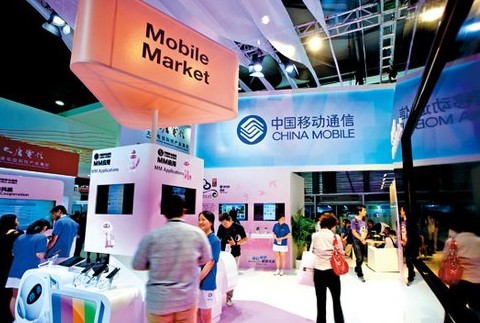As the 4G industrialization policy is approaching, its beneficiaries are becoming clearer,
In addition to the traditional three major operators, equipment vendors and video websites will benefit
In the case of 3G has not yet been widely popularized, 4G has roared.
On October 17, an official from the Science and Technology Department of the Ministry of Industry and Information disclosed: "4G has confirmed the first TD license, and the Ministry of Industry and Information is still organizing operators and experts to negotiate 4G spectrum allocation.
As early as September 24 at the 2013 Beijing International Communications Exhibition, Miao Wei, Minister of the Ministry of Industry and Information Technology, said that 4G licenses will be officially issued before the end of this year.
What is 4G? In short, it is the fourth generation mobile communication and its technology.
Compared with 3G, what are the advantages of 4G? One of the advantages of 4G is reflected in the video transmission. The 4G services currently used internationally are also mainly related to video. Once the 4G technology is promoted, it will bring great benefits to video websites and Internet TV stations.
For listed companies, 4G industrialization will first affect the profit distribution pattern of the three major operators, followed by related industries such as communication equipment manufacturers, smartphone manufacturers and Internet video sites.

Three major operators secretly fight
On October 13, the Ministry of Industry and Information Technology formally approved the approval of China Mobile to conduct TD-LTE scale-up trials in 326 cities across the country including Beijing. For some time to come, China Mobile may set off a wave of 4G trial number release nationwide. China Mobile's "ambition" for 4G is obvious.
Compared with the other two major domestic telecom operators, China Mobile seems to have taken the lead in 4G.
Looking back, in the 2G era, China Mobile is the only one. In the 3G wave, it was squeezed by China Telecom and China Unicom, and it was frustrated everywhere. Now that we are ushering in the 4G era, there is no doubt that it will give it a go.
The issuance of 4G licenses has a great impact on consumer psychology. China Mobile will effectively curb the loss of users, especially in the core first-tier and second-tier central cities. The customer development trend of the three operators will appear a new reversal and the market share will be rebalanced. There are new trends.
All along, China Mobile has shown itself as an "urgent march" in the construction of 4G. At the beginning of February 2013, China Mobile announced the launch of a full-scale commercial trial of 4G services in Hangzhou, Wenzhou, and Ningbo based on the TD-LTE network, and more than ten cities such as Guangzhou and Shenzhen have also launched scale tests. A larger plan is that in 2013, China Mobile will complete 4G TD-LTE network coverage of nearly 500 million people in major cities and regions in China.
From the performance point of view, China Mobile's net profit reached 129.3 billion yuan last year, China Unicom and China Telecom were 7.1 billion yuan and 14.9 billion yuan, respectively. From the perspective of the Ministry of Industry and Information Technology, China Mobile has been "special care" for these years, in fact, it does not want to move a single company.
In 2013, LTE (short for Long Term EvoluTIon) worldwide. It is considered by the industry as the communication version of 4G, similar to GSM and CDMA in the 2G era, and can be divided into two categories: FD-LTE and TD-LTE. Comprehensive construction Speed ​​up, but at present, the decline in profits and the crisis of pipeline are still a headache for global telecom operators. In 2013, China's 4G commercial construction process accelerated significantly.
According to recent media reports, China Telecom will obtain the 1.8GHz frequency band (1755 ~ 1785MHZ / 1850 ~ 1880MHz), and China Unicom will obtain the 2.1 GHz frequency band (1955 ~ 1980MHz / 2145 ~ 2170MHz). In the LTE band.
At the same time, the Ministry of Industry and Information Technology has allocated the 2500MHZ ~ 2690MHZ frequency band to TD-LTE. So many spectrum resources will be shared by the three operators.
In this competition for 4G frequency bands, some market analysts believe that China Unicom and China Telecom have obtained better frequency bands. However, according to people familiar with the matter, this is not the final comparison result. It is reported that China Mobile proposed that based on the overall consideration of the use of 3G and 4G frequencies, it is hoped that relevant ministries and commissions will also plan the 1427MHz ~ 1525MHz frequency band for the TD-LTE system.
The beneficiary industry is in full bloom
In addition to the three major operators, which industries will share the feast brought by 4G?
Obviously, the promotion of 4G will first bring opportunities to the communications equipment manufacturing industry, especially the leading domestic companies such as Huawei and ZTE.
Industry insiders estimate that the total number of 4G base station construction of the three major operators will reach 600,000 in the next three years. Based on the construction cost of 500,000 yuan per base station, the direct investment of the three major operators in base station construction is expected to reach 300 billion yuan .
China Mobile recently announced the bidding results for the 2013 TD-LTE wireless main equipment. Huawei, ZTE, Ericsson, Datang Mobile, Nokia Siemens Networks, Shanghai Bell, FiberHome, Xinyoutong and Putian won the bid. According to industry sources, ZTE's winning share is 26%, which is the same as Huawei's.
China Telecom ’s 4G bidding results show that ZTE, Huawei, and Shanghai Bell respectively received 32%, 29%, and 16% of the market share, Xinyoutong and Datang Mobile each have 6% of the share, and Ericsson and NSN both have 4%. Fiberhome Communications is 2%.
It can be seen that in the bidding of operators for 4G equipment, domestic equipment manufacturers such as Huawei and ZTE have occupied the main market share and become the biggest beneficiaries of the domestic 4G feast.
Secondly, 4G licensing will bring a new wave of smartphone sales growth. The most direct reason is that the use of 4G network requires the replacement of mobile phones.
According to data estimated by IDC (the world's leading professional provider of information technology and telecommunications market consulting), China's smartphone shipments will reach 450 million units in 2014, an increase of 25%, of which 4G-enabled smartphones will exceed 120 million unit. In terms of terminal vendors, domestic mobile phone manufacturers, including Huawei, ZTE, and Coolpad, have all launched TD-LTE smart phones, and some manufacturers have indicated that their products are ready for licensing.
It is worth mentioning that although smart TV is based on broadband + WIFI as the core of network support, it will also greatly benefit from the content torrent brought by 4G.
In addition, the mobile Internet industry may have a large leap forward because of the large-scale advancement of 4G.
The comprehensive construction of LTE has the greatest impact on Internet video sites. And for video sites such as LeTV, a listed company, the revenue based on the operator's pipeline will increase. Huayi Brothers, Light Media and other content producers will also benefit.
At the same time, a large number of screenwriters, directors, and actors will have to reposition the mainstream interface. Zhang Yimou chose to cooperate with LeTV as a typical example.
TV series or even movies may be produced by unknown little people or accidentally created. After news reporters are “run over†on Weibo, changes in the film and television industry and TV news reports will soon occur.
Because 4G will enable users to watch high-definition video smoothly through the mobile communication network anytime, anywhere. And high-quality audio and video mobile applications will be reborn. When the traffic tariff is within the user's acceptable range, the operator will benefit from the traffic fee.
Due to the fast speed and good experience of 4G, some mobile Internet applications with bandwidth bottlenecks will be fully liberated.
It is foreseeable that mobile game companies also benefit. Because the speed of downloading apps on smartphones has greatly increased-this is conducive to enhancing the user experience of mobile games.
In addition, such as cloud computing services represented by video sharing, remote monitoring, cloud storage, mobile e-commerce, and even video calling, a forgotten business in the 3G era, will also be reborn in 4G.
Be wary of OTT business looming love
In addition to the mutual competition in the 4G licenses, the three major operators will collectively face a difficult problem in the 4G era. That is, the abbreviation of OTT (“Over The Top†refers to the Internet companies that have passed the operators and developed various open Internet-based Video and data services).
OTT services can be divided into two types: comprehensive communication and content. The former includes Fetion, WeChat, etc., the latter refers to music, video, reading, games and other products of major Internet companies. In the 4G era, with wider bandwidth and faster speed, the OTT business will surely have greater development. If operators cannot find a good profit model, will it outweigh the gains?
This means that from 3G to 4G, the network speed has increased many times, but the operator has no way to receive more money. Many OTT service providers directly provide services and billing to users, so that the operators are reduced to pure "transmission channels", and the huge value of transmission in the pipeline cannot be touched at all.
Why are telecom operators always confused by OTT operators?
Because the business model of telecom business and OTT business is very different. Local OTT services that are profitable from telecommunications services are free. Taking WeChat as an example, telecom operators charge SMS and WeChat are free; telecom operators charge for calls and WeChat is free.
Some time ago, China Telecom and NetEase jointly launched Yixin. It is not only an attempt by China Telecom to participate in Internet services, but also can be seen as a counterattack attempt on behalf of telecom operators against OTT operators.
Led Emergency Light have been divided into two heads emergency lights , bulkhead emergency lights , emergency ceiling lights and emergency bulbs . The role of emergency lights is an emergency state evacuating people , generally used in public places . All emergency lights use LED source , its advantages are high brightness , low power consumption , LED lighting effect than the traditional light source energy saving nearly 80% .

Led Emergency Light,Rechargeable Emergency Lighting,Recessed Emergency Light,Automatic Emergency Light
Jiangmen City Pengjiang District Qihui Lighting Electrical Appliances Co., Ltd , https://www.qihuilights.com